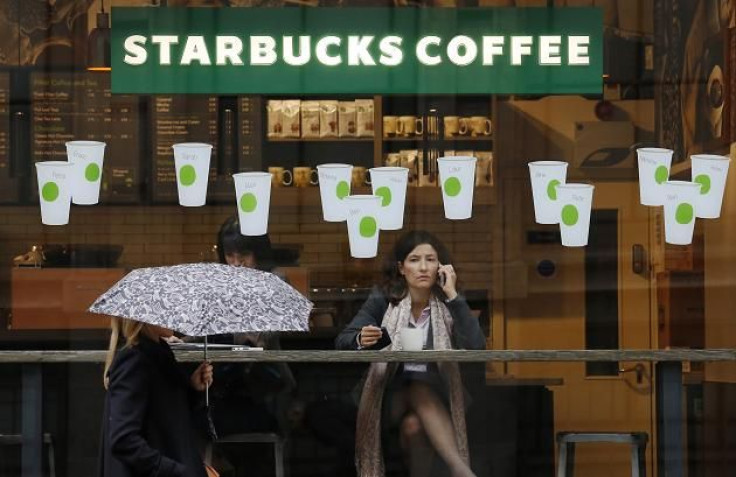Starbucks Aims To Double Market Cap to $100 Billion And Take Over Tea

The world’s biggest coffee chain, Starbucks Corporation (NASDAQ:SBUX), plans to double its market capitalization to $100 billion eventually and dominate the tea industry just as it has with coffee, the company said at its annual shareholder meeting on Wednesday.
The company’s market cap has grown from $5 billion in November 2008 to over $57 billion today, underlining the 948 percent increase in Starbucks’ share price since then. For comparison, food giant McDonald’s Corporation (NYSE:MCD) has a market cap of $95 billion while tech powerhouse Apple Inc. (NASDAQ:AAPL) weighs in at $477 billion.
“You’d be hard pressed to find any retailer today who has a business of this scale, in relation to the fact that our average ticket value is $5,” said Starbucks CEO Howard Schultz before an audience in Seattle, where the company is headquartered.
Schultz’ address caps off a strong 2013, where the company hit record revenues of $14.9 billion and served more than 70 million customers each week.
But the company also has a challenge in emerging markets. In China, Starbucks has more than 1,100 stores, relative to the presence of almost 13,500 stores in the Americas. In India, Starbucks has only 40 stores in four cities, said Starbucks’ India chief Avani Davda, who leads Tata Starbucks Limited.
In common with other U.S. household names like The Coca-Cola Company (NYSE:KO) and PepsiCo, Inc. (NYSE:PEP), Starbucks has bet on emerging markets as a way to spur further growth, as it reaches saturation in its domestic U.S. market. Starbucks has not caught on well in Europe.
Schultz drew attention to the promotion of Starbucks as a globalized brand. The company is sometimes criticized and parodied for its quick proliferation of branches.
“How do you not accept and embrace ubiquity, but really embrace local relevancy?” he asked shareholders, citing local adaptation as a larger challenge than business strategy.
Starbucks also sees the $90 billion global tea industry as a ripe market for entry, though the company’s reach so far has been small. Starbucks acquired Teavana in December 2012 and launched tea bars in U.S. cities earlier this year, but will only open 20 more stores by the end of fiscal 2014.
Schultz, who is sometimes politically outspoken, also criticized lawmakers and other officials, saying: “We have a void of leadership.” He has previously asked gun owners to leave guns at home when visiting Starbucks and offered a petition in Starbucks stores opposing the government shutdown in October 2013.
If raw coffee prices remain high, however, profit margins for Starbucks’ small packaged coffee business could erode in the long term, wrote equity researcher Trefis in a March 13 note. Coffee prices have surged this year, making it the best performing commodity for the year to date, as record dry weather in Brazil has undermined production forecasts.
Starbucks also launched its new iPhone app at the meeting, allowing shoppers to tip employees directly on the app. The company also revealed that over 14 percent of its U.S. transactions are made with mobile payments, and touted its claim to be the retailer receiving the most mobile payments in the world.
© Copyright IBTimes 2024. All rights reserved.












